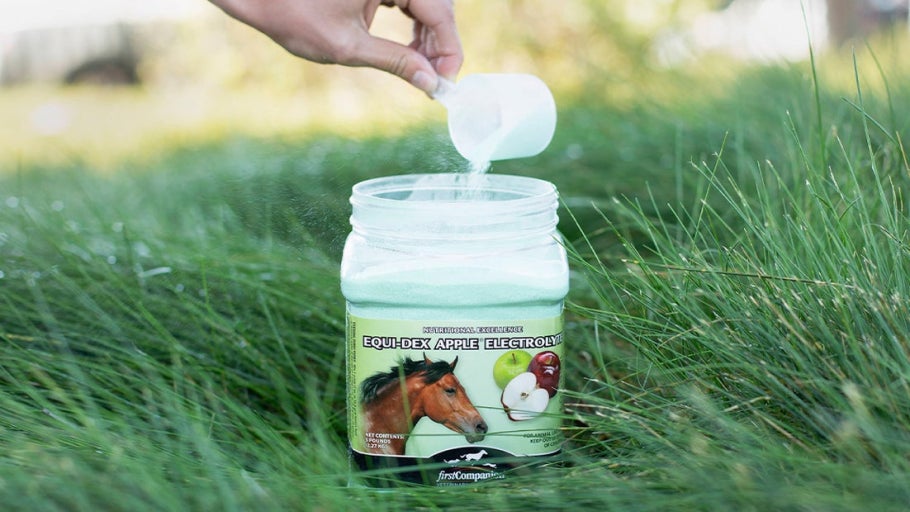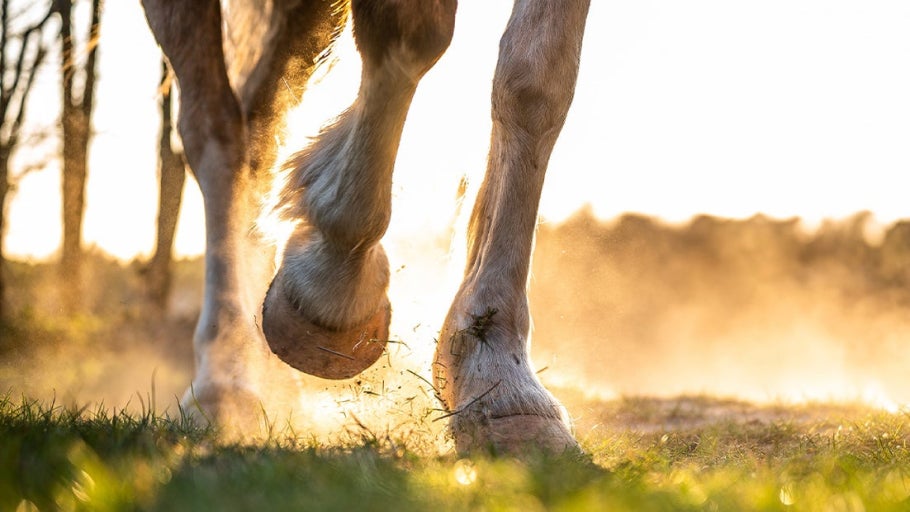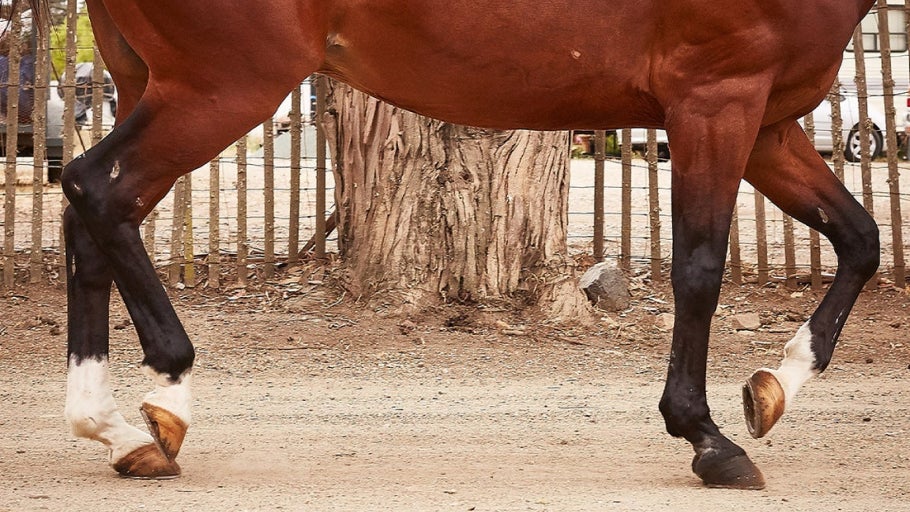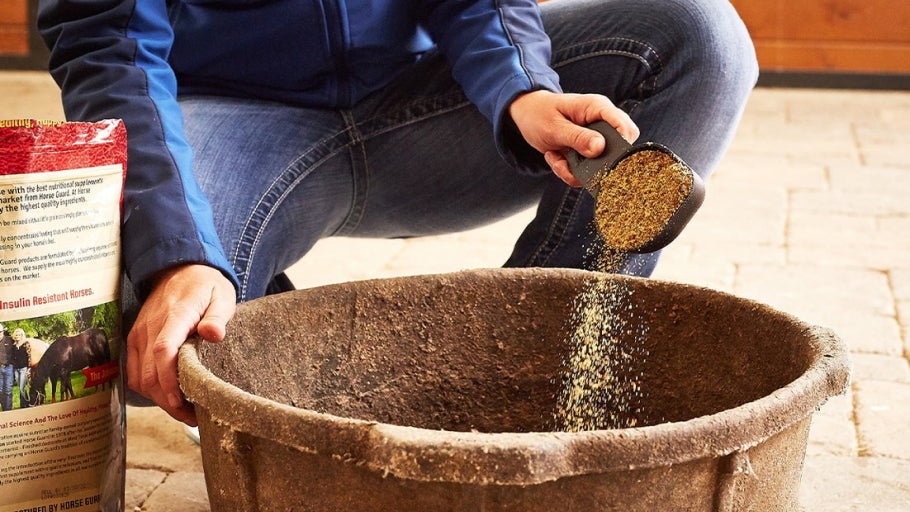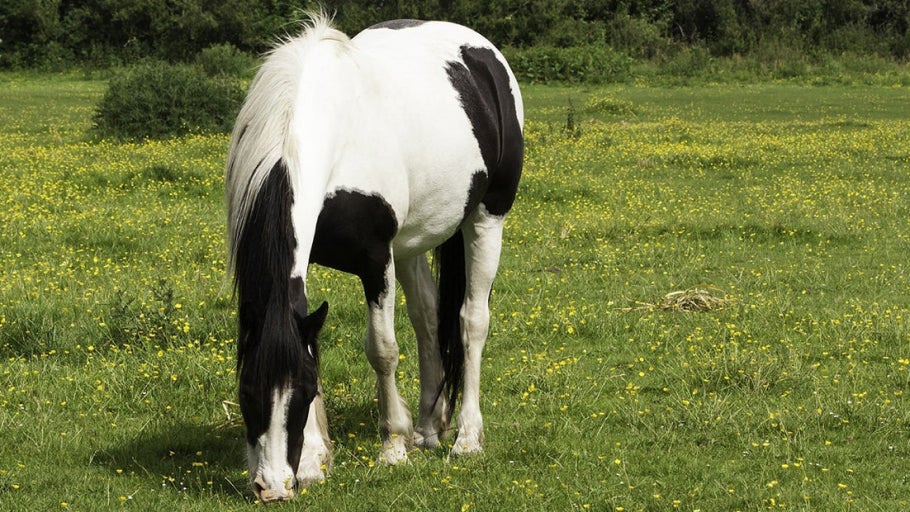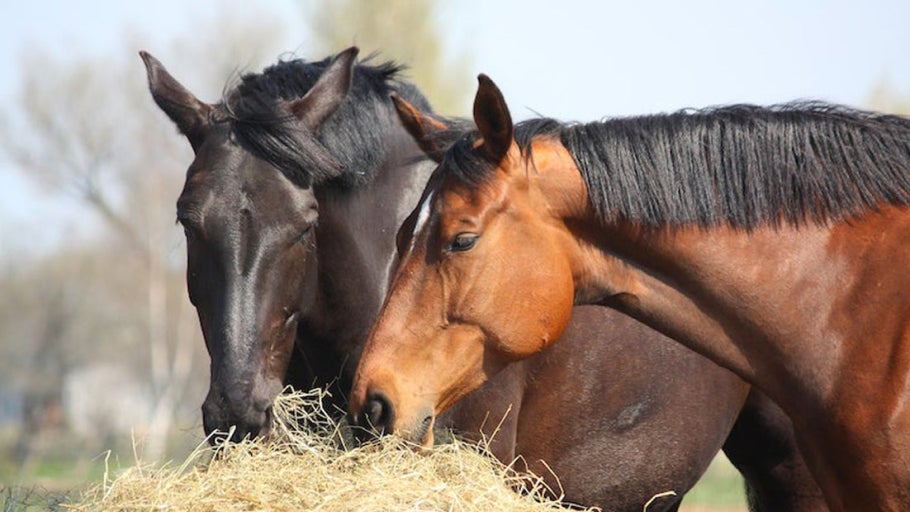
The Scoop On Equine Vitamin & Mineral Supplements
If you own a horse, you may have found yourself wondering whether the diet you are providing them contains everything they need. Or you might have a horse that's showing signs of a deficiency, and you're not sure how to get them what they need. Designed to fill nutritional gaps, vitamin and mineral supplements can be an easy way to support your horse's overall health and performance. In this edition of "The Scoop on Supplements," we will be addressing a few factors to consider before feeding supplements and explaining the functions of vitamins and minerals. We'll also help answer a few frequently asked questions, so that you can make the best supplement selection for your horse!
Evaluate Your Horse's Diet
While deciding whether to feed a vitamin or mineral supplement, you should first evaluate your horse's diet—preferably with the help of an equine nutritionist. If your horse has regular access to fresh grass or high-quality hay, they likely are already receiving all the nutrients they need. We highly suggest getting a hay analysis done to better understand the nutritional value of your hay and where deficiencies might be. Additionally, many concentrated feeds already provide vitamins and minerals in them; this is something to keep in mind if your horse receives grain. However, horses that eat minimal amounts of grain may not absorb the full nutritional value from their grain alone. A supplement can help fill in any nutritional gaps in your horse's diet.
Your horse's body condition is another thing to consider before feeding a vitamin and mineral supplement. Certain deficiencies may display themselves as a dull or sun-bleached coat, brittle/breaking mane and tail hair, poor recovery from exercise, or other symptoms (depending on the cause and severity). Some horses can show nutritional deficiencies by excessively eating dirt or clay. It's normal and healthy for horses to do this, but if you catch your horse consistently eating dirt or clay, then that can point to a mineral imbalance. Another sign can be an adult horse consuming equine feces; note that foals will do this with their mothers for minerals, but they stop once they begin eating an adult diet. If your horse has a good weight, shiny coat, maintains good energy, and lacks any negative eating behavior signs, they likely do not need supplementation.
We recommend consulting with your vet and/or equine nutritionist before adding any supplement to your horse's diet.
The Basics of Vitamins
Vitamins are organic compounds needed to sustain many processes throughout the horse's body for optimal health. They are divided into fat-soluble and water-soluble groups, which simply means the vitamin dissolves in either fat or water. Every vitamin is needed in different amounts and has a special function in the horse's system. Let's dive into the specifics of each!
Fat-Soluble Vitamins
Vitamin A: Supports vision, bone growth, and reproductive function. Horses primarily get their vitamin A through beta carotene present in fresh grass and high-quality hay.
Vitamin E: Functions as an antioxidant, supports the immune system, and supports muscle function and recovery. Horses primarily get vitamin E from fresh grass. If supplementing, opt for natural vitamin E (d-alpha-tocopherol) for better absorption—as opposed to synthetic vitamin E (dl-alpha-tocopherol).
Water-Soluble Vitamins
B Vitamins: There are eight types of B vitamins, each involved in some aspect of metabolism, energy production, and nervous system function. A common B vitamin is biotin, often fed to support hoof health. Other critical B vitamins are Thiamin, Riboflavin, and Niacin.
Vitamin C: Functions as an antioxidant and aids in the formation of collagen to support connective tissue. Horses naturally make their own vitamin C, so supplementing is typically not necessary.
Folate: Supports red blood cell synthesis and healthy tissue maintenance, which keeps the horse's body properly oxygenated.
Macro & Micro-Minerals
Minerals are inorganic compounds that help regulate a variety of important functions throughout the horse's body, such as: skeletal integrity, cellular function, immunity, and more. Macro-minerals are needed in relatively large amounts. Micro-minerals are needed in much smaller quantities, and they are commonly referred to as trace minerals. Below, we break down the ins and outs of what each of these minerals do in the horse's system.
Macro-Minerals
Calcium: The majority of calcium is found in the bones and teeth; however, it also plays a vital role in nerve function and muscle contraction. Hay is the primary source of calcium for most horses, with alfalfa containing higher amounts than grass hay.
Magnesium: Magnesium functions as a co-factor for hundreds of reactions in the body, from energy production to DNA synthesis. It is also critical for nerve function and muscle relaxation. Most horses get enough from hay and grain.
Phosphorus: Supports bone health and energy production. Most horses get enough from hay and grain.
Sodium: Helps the body manage fluid balance by helping to retain water. Horses typically consume salt through concentrated feeds or by licking a salt block. If your horse is sodium deficient, feeding loose salt provides a higher concentration.
Chloride: Chloride pairs with sodium to create sodium chloride, otherwise known as table salt. It is important for fluid regulation, supporting hydrochloric acid production in the stomach, and maintaining acid-base balance in the body.
Potassium: Along with sodium, potassium helps regulate fluid balance, muscle contraction, and relaxation. Most horses get enough through their diet since forage is high in potassium.
Sulfur: Supports the structural integrity of protein hormones, such as insulin. Also helps the skin, coat, and hooves. Horses generally get sulfur from hay, grains, and some supplements (like MSM).
Micro-Minerals
Zinc: Supports a variety of enzymes throughout the body, as well as immune function and wound healing. Horses typically get enough zinc from hay and grain.
Selenium: Functions as an antioxidant alongside vitamin E. Selenium is found in hay. However, hay grown in selenium-deficient soil in certain parts of the US may not provide adequate amounts of this mineral.
Chromium: Co-factor in activating insulin, determining insulin effectiveness. It also improves glucose metabolism and the utilization of both carbs and fats. Horses typically get enough chromium in their diet.
Iron: Needed for the synthesis of hemoglobin, the protein molecule that transports oxygen. Most horses get plenty of iron through their diet.
Copper: Supports bone development, iron utilization, and maintenance of tissue. Horses typically get enough copper from hay, beet pulp, and concentrated feeds.
Cobalt: Supports metabolism and vitamin B12 synthesis in the hindgut. Like other minerals, horses typically get plenty from high-quality hay and grain.
Iodine: Interacts in the synthesis of thyroid hormones, which regulate metabolism and cell activity. Iodine also functions in reproduction. Most horses receive enough iodine from their diet.
Manganese: Has a role in enzyme and brain function. Manganese helps with bone growth, protein digestion, and antioxidant protection. Horses typically receive enough manganese.
Frequently Asked Questions
How do I know if my horse needs a vitamin or mineral supplement?
Horses commonly get all of the vitamins they need if they're on a balanced, high-quality diet. Most equines do not need a vitamin supplement, because they are also physiologically able to synthesize vitamins. If your horse has limited access to sunlight, is ailed with a chronic condition, or is experiencing an acute illness, you may need to supplement vitamins as support. There are few detrimental health issues that can originate from the over-supplementation of vitamins.
Specific vitamins and minerals might be deficient in the forage and soil composition of certain areas, which could warrant the need for supplementation of one or more vitamins or minerals. A long-term mineral deficiency can cause physical symptoms: dull coat, sun-bleaching, brittle mane and tail hair, poor digestion, deteriorating joints and hooves, excessive dirt consumption, manure consumption in adults, and more. Note that toxicity from having too much of one or more minerals can be detrimental, so supplement accordingly to balance the correct ratio of minerals without overfeeding your horse. Always consult with your vet or equine nutritionist if you're unsure of the correct balance for your horse.
How much of the supplement should I feed, and for how long?
Your horse's vitamin and mineral needs can vary with age, activity, and weight. Pregnant and lactating horses, or horses that are ill and stressed, may require vitamin or mineral supplementation on a long-term basis. Young horses and performance horses are at higher risk for nutrient deficiencies, and they may need temporary supplementation. If your horse has a hindering genetic condition, or their diet is continually deficient, they may benefit from vitamin and mineral supplementation over a longer period or "permanently." We highly encourage consulting an equine nutritionist or vet to see if your horse is nutrient deficient or not.
Closing Thoughts
Both vitamins and minerals play a key role in your horse's overall health. Maintaining the correct balance is pivotal for the peak performance and health of your equine friend. Note that supplementation of vitamins and minerals is normally not necessary for the vast majority of horses! Most horses with access to grass pasture or another quality feeding program that fits their region are often sufficient.
Talking with your vet or equine nutritionist about any concerns you may have about deficiencies is always the best approach! Your trusted professional can answer any questions you have and guide you towards the vitamins or minerals your horse needs, so you can select the perfect supplement. If your horse is in need, we invite you to check out our selection of equine vitamin and mineral supplements below. For questions regarding supplement products, please contact our customer service by calling 1(800)620-9145 or by emailing info@ridingwarehouse.com. Happy riding!
Further Reading
We understand that you may want to do more research on horse diet/nutrition and its related conditions. That's why we compiled some great sources below, so you can take a deeper dive!
- The Role of Micronutrients in Equine Nutrition by Ohio State University Extension
- Nutritional Requirements of Horses and Other Equids by Merck Veterinary Manual
- Mineral and Vitamin Intoxication in Horses by Science Direct
- Vitamins for Horses: Requirements, Roles, Deficiency & Excess by Mad Barn
Related Articles

